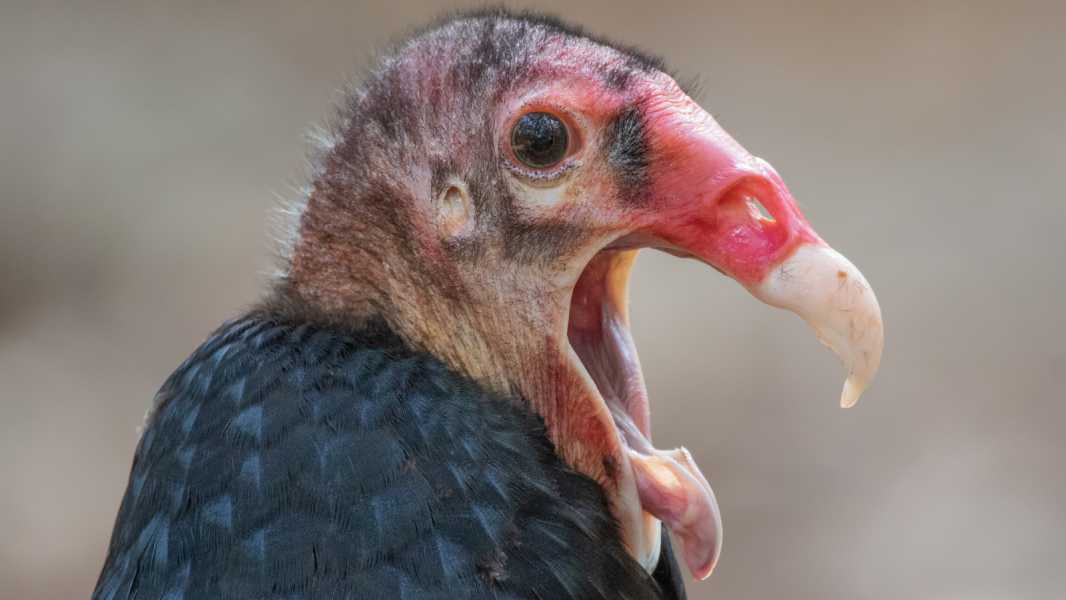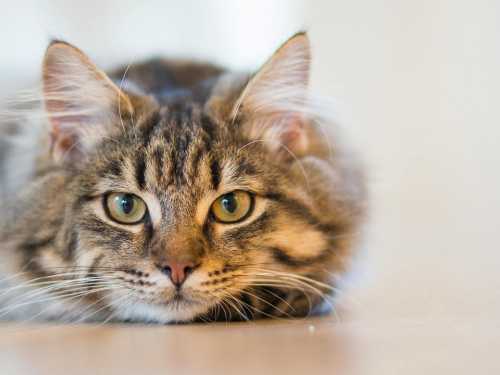
Vultures feed on dead animals, helping to reduce greenhouse gas emissions. (Photo by Cavan Images/Getty Images)
Name: Turkey Vulture (Cathartes aura)
Habitat: from southern Canada to the very south of South America.
What it eats: The remains of dead animals.
Why it's impressive: These scavengers have an amazing way of scaring off predators – they throw gastric juice and semi-digested meat at attackers.
Turkey vultures live in a wide range of ecosystems, including subtropical forests, scrublands, and deserts. They have bare heads, which prevents blood and entrails from getting trapped in their feathers when they eat carcasses.
Like many other vulture species, these birds feed on the remains of already dead animals rather than killing their prey.
Despite their impressive size – their wingspan is about 5.5 feet (1.7 meters) – they are also preyed upon by other birds, such as eagles, owls and hawks. However, these vultures have an elegant way of defending themselves. When they sense danger or fear, turkey vultures burp a nasty, acidic substance that can damage the predator’s eyes and skin. Their stomach acid is as powerful as battery acid and 100 times stronger than that found in human stomachs, which helps the birds neutralize toxins found in decaying meat, such as anthrax and botulism.
They can spit this substance up to 10 feet (3 m) away to distract and deter attackers. However, it also allows the birds to quickly lighten their weight, making it easier to take off and escape.
Published by WildCareBayArea on
These birds also use their bodily fluids in a variety of ways. Turkeys defecate and urinate on their feet to cool down in the heat. Because their digestive juices kill bacteria, defecating on their feet also serves as an antiseptic wash after they've been on carcasses.
These scavengers rely on their eyesight and keen sense of smell to find food, flying low to sniff out gases released during the early stages of decomposition of dead animals. Vultures prevent tens of millions of metric tons of carbon emissions each year by consuming carcasses before they decompose and release greenhouse gases, according to a 2022 study published in the journal Ecosystem Services.
Unlike other birds, turkey vultures lay their eggs on the ground and hide them in vegetation, caves, or tree hollows. Although they are social birds that live in groups, they lack a syrinx, the vocal organ of birds. So instead of singing, they communicate by grunting and hissing.
TOPICS amazing animals

Lydia SmithSocial Link NavigationScience Writer
Lydia Smith is a health and science journalist working for publications in the UK and US. She is studying for an MSc in Psychology at the University of Glasgow and has an MA in English Literature from King's College London.
Sourse: www.livescience.com





